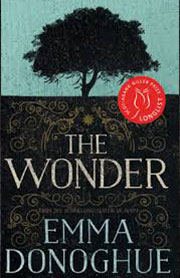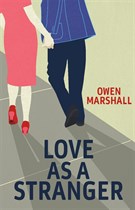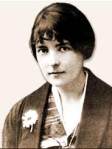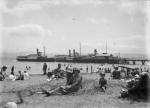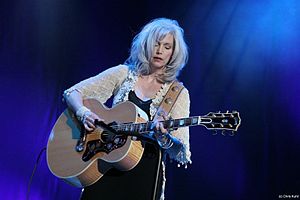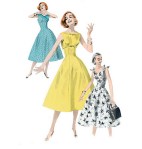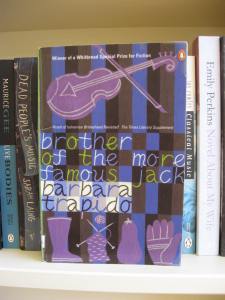For last year’s words belong to last year’s language
(Four Quartets, Little Gidding, T.S. Eliot).
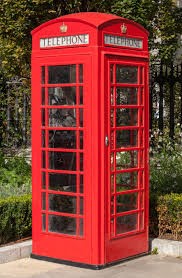
I am standing somewhere in Leicester Square. It is either midnight or close to. I am inside a red phone booth. Maybe it reeks of urine, but I do not remember. In my hand is a black receiver with a mouthpiece into which I am speaking. My head is nestled into an earpiece straining to catch the words coming from 12,000 miles away. I can hear my own words echoing back at me over the voice of my mother, and then my father. Just before the three minutes is up, an operator interrupts our stilted conversation to let me know that if I wish to continue, I need to insert more coins. Three minutes is all I can afford and all it affords me, is a series of frantic hellos and goodbyes echoing into the night. It is 1972, phone calls are expensive.
Christmas that same year, I am in Edinburgh living in a neoclassical (now historic A listed) building in Leith, on the edge of respectability. My flat is dark, bitterly cold and has a bold red street facing front door. A telegram arrives to wish me Merry Christmas Stop and a Happy New Year Stop. Each word costs my parents a small fortune, the two stops included. We are not on Viber, we cannot see each other and my blue aerogrammes take a week or two to cross the dateline homewards. My Dad drinks at the local pub after work every night. He is good friends with the local postman. Sometimes, if an aerogramme has arrived before delivery the next day, the postman will take my letter and deliver it in person to my Dad at the pub.
I grew up in a modest post-war Jerry-built wooden bungalow. Ostensibly we were working-class but New Zealand was more egalitarian back then. In our street including my Dad, a carpenter, were the butcher, a baker, a painter, a chemist, a doctor, three schoolteachers, and eventually, years after I left, a Prime Minister. Most women back then were not in paid work, well not in our street. We had no telephone. If we wanted to call my grandmother we needed to walk to the top of our street, up a small hill, to a phone booth. I was born in a cottage hospital at the top of that hill. My father and I received the news of my grandmother’s death in that phone booth. My mother was with my dying grandmother. Dad and I walked up the hill to the phone booth to call for news. I recall I screamed. A man passing by in his car, heard me scream, stopped and came to rescue me – seeing me in a phone booth with my Dad, and not knowing quite what was going on. This same man, when he learned our sad news, that my grandmother had just died, drove us up to my grandmothers.
When I lived at home, I woke each morning to the sound of the BBC News, as my father washed himself in the bathroom and sang. We had a tin bath but no shower. His ablutions were a ritual of running water and a lot of sloshing. Big Ben would chime before the news over shortwave radio and the news reader had a gravitas that brooked no doubt. No one speaking in such a well-bred, carefully modulated timbre could possibly be telling other than the truth. The Cuban Crisis, Kennedy’s assassination, and his funeral, all came to us from the blue Bakelite radio above the small green fridge. The fridge I might add, was a modern wonder that had replaced but not entirely, the safe above the kitchen sink near the coal range.
My eldest brother left school to join the Merchant Navy and was travelling as a teenager to the Pacific Islands specifically Nauru for phosphate and up to Hong Kong and Japan. He returned from a trip with a portable tape recorder as a gift for me. It had a small microphone for recording and tiny reel to reel tapes. My best friend and I would visit the local shops and record our conversations with the fruiterer or the local bookshop. I would secrete the tape recorder, uncomfortably under my cardigan. I would disguise the microphone which hung around my neck with a daphne cutting from my mother’s garden. We felt like spies and thought ourselves entirely clandestine. I cannot recall any of the recordings, but I smile now to think that we thought we fooled anyone.
Many families back in the 60’s owned stylish stereograms, which appeared to be as much about furniture as about music. Some cabinets that housed the turntable also converted into a drinks cabinet. Our very first musical turntable was a wind-up gramophone and from memory, we had two records. One was Mario Lanza which may well have been quite hi-brow and the other played the Irish song The Stone Outside Dan Murphy’s Door. The gramophone was in a case that sat on the floor in the front room when it was played and then it was put away in the big cupboard in Mum and Dad’s bedroom. Unless you wound the handle sufficiently, the record would slow right down and that is my memory of the final refrain of the song which repeats the title, in a slow motion sound as the gramophone wound down. Many years later, an older sibling purchased a full-size ACME reel to reel tape recorder. We taped from the radio and had everything from Herman’s Hermits, the Beatles, Dusty Springfield, Petula Clark, Simon and Garfunkel, Sandie Shaw, Helen Shapiro, Diana Ross and Cilla Black. When I look back, we were lucky with so many outstanding female singers to listen to back then. Our influences were very much persuaded by the English pop charts early on, rather more than the American.
Then in the early 70’s, travelling by myself, I took my music with me on a small cassette player, listening to Carole King, Cat Stevens, Donovan, Neil Young and Blood Sweat and Tears, mostly American music. Later, in the mid 70’s, travelling with my now husband, we would make recordings of ourselves talking to our families on small cassettes and post these small cassette tapes home. The cassette would then be recorded over by the recipient, my husband’s brother, or my Dad, as by then my mother had died. I still recall our laughter, as we sat in a Norsk hytter surrounded by metres of snow, as my future brother-in-law back in New Zealand with a young family, regaled us with the woes of the newly instigated daylight saving. The entire one-way conversation was meticulous detail of the complications of old time and new time, the impact it was having. It made no sense to us that someone could be so disturbed by a one-hour difference in their lives. We’d just hitch-hiked to Lapland to observe the Midnight Sun. It wasn’t until we had our own family in the late 70’s and very early 80’s, that that one-hour difference when putting a toddler to bed, finally registered with us.
All my photos taken when travelling by myself in the early 70’s, including a solo Greyhound Bus trip around the USA, living in London, Newcastle, Manchester, Edinburgh and Norway, were recorded on slides. When I returned for the first time from overseas, a friend of my dear maiden aunt’s, invited me to her house along with her local friends and neighbours to show my slides. I recall how amateur my slides were, so dark and different from the instantly captured high resolution photos that an iPhone can capture. We were all in her front room, the lights out, a slide projector was whirring as photos of me in a purple midi coat standing by Cleopatras Needle on the Thames finally came into focus upon a white bed-sheet on the wall. The audience were all appreciative and I was the feted returning traveller. London, our Colonial homeland, and I had been there, although both my mother and father were born in New Zealand. Watching Helen Mirren before she was famous, at Stratford on Avon in a Royal Shakespeare production which from memory was performed outdoors by the river. But memory fails me on which particular play.
For a short time during my OE, I was staying in Nazareth Pa, USA having fallen in love with an American Coastguard sailor who had dodged the Vietnam Draft by signing up for seven years on the Icebreakers. We met at the Downtown Club in Wellington in the late 60’s and I ended up staying for some weeks with his family who were bemused by this girl from Downunder. I recall Polaroid photographs were the technology of that time, an instant image rolling out from the camera in technicolour. I kept a couple from that era, but they have faded. Then, more recently, my daughter-in-law purchased a brand-new super-duper Polaroid camera which had a brief moment in our lives, but not for very long. TikTok, Instagram, Facebook, Twitter, Snapchat, the list continues and images of sunsets and sunrises so ubiquitous as to be rendered schmaltzy. Everyone is a photographer, and everyone can communicate almost instantly with almost anyone in the world. We are blinded by sunsets, sunrises, and airbrushed joy.
When I returned from my travels in the mid to late 1970’s, I was employed for a while with the Time Life Magazine Sales Office in Auckland. These were heady days when triple page spreads for Rothmans or some Liquor brand, kept the magazine viable. The Sales Team at Time simply wined and dined the advertising agencies at such places as Antoine’s, Le Brie or Clichy’s ensuring ongoing advertising placements. It was a time of lavish expense accounts and too, the emergence in Auckland of trendy fine dining. Time Magazine had prestige and clout back then. Possibly a time of general naivety without the Twitter trail of fact checking. I recall an issue of Time Magazine dedicated to South East Asia when Muldoon and some sheep were on the front cover. Advertising was easy to sell with a front-page story about New Zealand. Journalists and a famous photographer, Rick Smolan, fresh from his filming of Robyn Davidson trekking across Australia on a camel, came to New Zealand for about three days. Nowadays, Robyn Davidson would be more likely instagramming her own journey on a camel. I recall Rick Smolan travelling light with a camera slung across his shoulder and the straps of the camera festooned with baggage tags. Baggage tags back then were an overt status symbol. Those of us who travelled, left the tags on our suitcases, proof of our international adventures. The photographer and a couple of Time Life journalists travelled to Taupo. They stayed at Huka Lodge and wrote romantically about Zane Grey and fishing in Lake Taupo. I saw the expense account. For the price paid, I envisaged scuba divers in the lake putting trout onto the fishing lines of the journalists… but worse than that, the statistics in the primary piece about New Zealand, specifically about child mortality were somehow grossly over misrepresented. There were other factual errors and my faith in the 4th Estate began to wane.
I recall the heady afternoon, when one of the Time Life Sales Team brought in a fax machine. It was I think 1977 and the fax didn’t really take off for everyday use commercially until the 80’s. We may well have been the very first commercial companies in New Zealand to receive a fax. A small group of us waited in the boardroom with the Sales Team, our eyes glued to a compact machine on the coffee table. A fax came through from the Time Life Sydney office. Prior to that, the communications had been by telex. Back in the sixties, when I joined the Post Office as a shorthand typist, we would use up to six carbon sheets when typing a single memorandum, so that it could be circulated around the branch office. I was also responsible on shifts, for a small switchboard answering incoming phone calls and plugging the phones in manually to the extensions required.
About ten or fifteen years ago, we rented a holiday house in the Marlborough Sounds. The house had its own private beach reached by boat from Picton. We were somewhat surprised to read the instructions left by the owner of the house regarding phone calls. The house was on a party line and we were told not to answer the phone unless it was (for example, as I no longer recall exactly), long short long. Throughout the long weekend, the phone rang and rang incessantly. It was the same number (not ours) over, and over again. Finally, in frustration, my friend answered the phone. The caller was from London and furious that we had answered the phone, thus incurring her the cost of the call. She did, however, stop phoning, thank goodness, as it seemed obvious to all of us that whomever she was calling was not at home that weekend.
I contrast all of this with my solo adventures around the USA in 1972, doing a Greyhound bus trip from Vancouver Canada down the West Coast and up the East Coast including forays to Las Vegas (in those days, merely a strip and a few pokie machines). I even naively and yet safely, hitch-hiked on several occasions. Thankfully, my mother and father back in New Zealand, knew nothing of my adventures, apart from postcards that probably arrived, long after any perilous adventures. Too, there were broken hearts that I healed by myself, without recourse to instant contact with close friends and family back in New Zealand. My adventures were frequently about romance and idealised love, and I am glad in retrospect to have had these challenges to myself, made mistakes that only I know of, and poured my heart out into a diary, from which several pages have been torn and destroyed. The short few weeks when I was certain I was pregnant after unprotected sex. My mother back in New Zealand didn’t need to know and I had no one to tell. When I bled, it was a great relief. I’m glad I wasn’t in daily contact with my mother during these times. Too, when I ended up at the clinic for sexually transmitted diseases after my first sexual experience. This was a solo adventure, the penicillin worked and to be honest I was mortally ashamed. I imagine nowdays, that it might even be Twitter worthy news. That same first experience spawned a successful poem, fifty years later.
I’m on Twitter nowadays and mostly for the political links that I find. I’m fascinated by the banal, trivial and outright nasty comments that people I admire are prepared to post. Most recently Neil Gaman and his partner Amanda Palmer, stranded here in New Zealand during lockdown, enacted the early stages of a relationship breakdown, live on Twitter. My thoughts were for the innocent child in the middle of this so very personal muddle. Oh, I judged them, I did, but I could see that most people responded with empathy and compassion. And as happens on Twitter, many took sides, alas. It all seemed odd to be washing their laundry in public as my mother might have said.
I compare the use of Twitter and contrast this with the gravitas of the BBC News on shortwave radio. At least now I can verify facts, double check with several sources and make informed decisions. So I’m not wishing to go back to a time of censorship. A time when I idolised JFK and Jackie Kennedy and knew nothing really of American Politics. A time when I loved the Royal Family and went eight miles on the suburban bus to the picture theatre to watch the film of Princes Margaret’s wedding. Innocence indeed, and we also stood at the local Picture Theatre for God Save the Queen. A few dissidents in the more expensive seats at the back, often protested by sitting down, but we kids in the cheap front three rows knew nothing of politics. We were in thrall to the Metro Goldwyn Mayer’s and Paramount Pictures. Enchanted by the raising of the rich velvet scallop shaped curtain as it rose from the stage to expose the white screen. Billy Vaughan’s Sail Along Silvery Moon can still transport me to the magic of the Saturday Matinee, a sense of wonder. Yet nowadays I’m more likely to watch foreign films and arthouse movies than blockbuster Hollywood releases.
I started work as a sixteen-year-old at the Post Office, working on an Imperial 66 manual typewriter pounding the keys with up to five or six carbon copies. And today I write this essay from my brain to the screen on a Surface Pro that is so light, I carry it like a clutch bag. My travel in the 70’s was not documented on Instagram or Facebook. I have barely any photographic record of this adventure and instead I must retrieve these memories from my own internal memory bank without Facebook to prompt me, or photos from my phone. I can switch screens to check Facebook, check my phone for updates from Radio New Zealand about Covid-19 cases, use Google to verify the spelling of Rick Smolan the famous photographer I met briefly in 1977 and return with ease to place my thoughts on a screen that allows me to justify, spellcheck, delete and importantly to ‘save’, ready for emailing my entry to the Landfall Essay Competition. No doubt Instagram will remind me of the looming deadline.


